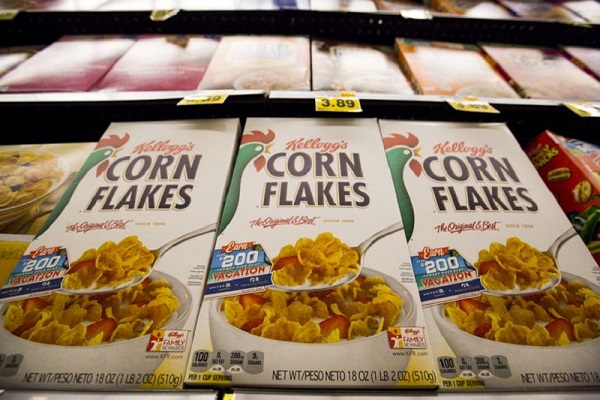Fannie Mae, Freddie Mac shares tumble after conservatorship comments
On Tuesday, DA Davidson provided insights into the recent performance of the Packaged Foods sector. Analyst Brian Holland reported to clients that for the last four weeks (L4W), year-over-year sales within the sector, excluding categories such as bakery, butcher, deli, and produce, have declined for the first time since the week following Easter in April 2024. This downturn is attributed to a decrease in volumes over the past two weeks, coinciding with a reduction in promotional activity.
Holland suggested that the later occurrence of Easter this year could be causing the observed sales softness, which might continue for another week. Within DA Davidson’s coverage universe, several companies experienced changes in their year-over-year sales velocity. Notably, J.M. Smucker Company (NYSE:SJM) saw an acceleration in sales compared to the last twelve weeks (L12W) and the last fifty-two weeks (L52W), maintaining a ’Neutral’ rating. According to InvestingPro, Kellogg Company (NYSE:K) is currently trading near its 52-week high of $83.22, with a market capitalization of $28.46 billion and appears slightly overvalued based on its Fair Value analysis.
Conversely, other companies in the analyst’s coverage, including B&G Foods (NYSE:BGS), The Hershey Company (NYSE:HSY), Simply Good Foods (NASDAQ:SMPL), Freshpet (NASDAQ:FRPT), Mondelez International (NASDAQ:MDLZ), Flowers Foods (NYSE:FLO), Oatly Group (NASDAQ:OTLY), Lancaster Colony (NASDAQ:LANC), Campbell Soup Company (NYSE:CPB), Kellogg Company (NYSE:K), and Utz Brands (NYSE:UTZ), have seen a deceleration in sales. These companies also hold a ’Neutral’ rating, except for Freshpet, Mondelez, and Oatly, which are rated ’Buy’ by DA Davidson.
The analyst’s update provides a snapshot of the sector’s performance and may serve as an indicator for investors monitoring the Packaged Foods industry. The influence of seasonal factors like Easter on sales trends is a key takeaway from this report, highlighting the variability in consumer purchasing patterns. Notable stability factors for Kellogg include its 55-year dividend payment history and relatively low price volatility, with a beta of 0.33, according to InvestingPro data.
In other recent news, Kellanova has made significant strides towards its merger with Mars, Incorporated, by securing the necessary consents to amend the terms of its outstanding notes. This amendment is a critical step in aligning Kellanova’s financial obligations with those of Mars, as reported in a recent SEC filing. The merger, expected to culminate in Kellanova becoming a wholly-owned subsidiary of Mars, aims to enhance the company’s business operations and financial backing. Additionally, Kellanova announced the granting of restricted stock units (RSUs) to its top executives, including CEO Mr. Cahillane, as part of a long-term incentive plan designed to align executive interests with shareholder value.
DA Davidson recently maintained a Neutral rating on Kellanova, with a price target of $83.50, following the company’s strong fourth-quarter earnings performance. The earnings exceeded expectations, primarily due to reduced administrative expenses after the Mars acquisition announcement. Although Kellanova’s organic net sales growth was robust, it was largely concentrated in the AMEA region, with North America and Europe showing signs of weakening market responsiveness. Despite the earnings beat, the Neutral rating suggests that the positive financial results may not fully capture the company’s operational strength, given the significant impact of reduced overhead costs. These recent developments highlight Kellanova’s strategic maneuvers in the competitive landscape of the food manufacturing industry.
This article was generated with the support of AI and reviewed by an editor. For more information see our T&C.
